








MIDWEEK UPDATE 18 SEPTEMBER 2019Plan Your Weekend……...Forthcoming Events……..Aviation News Worldwide Incidents and Accidents……This Week in Aviation History Notice Board   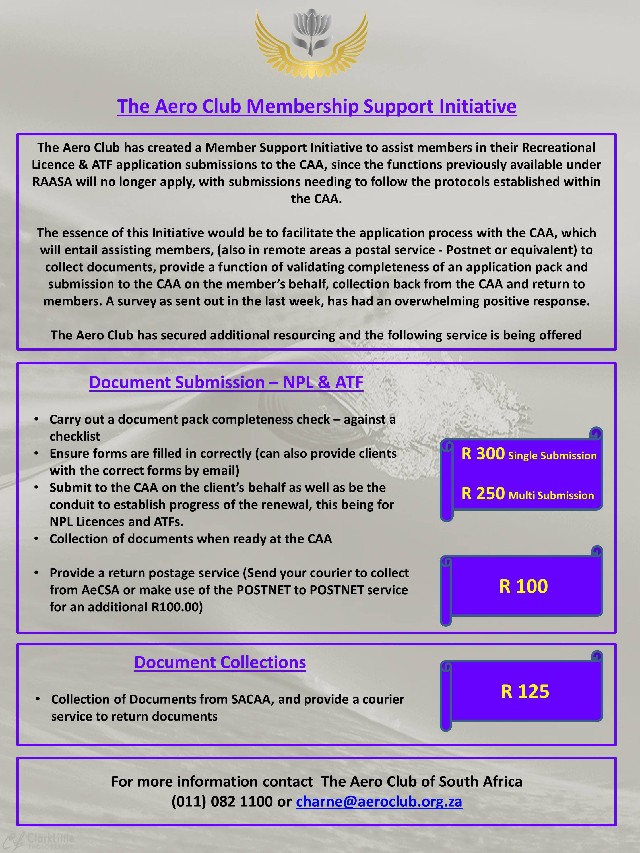   19: Oudshoorn Cango RC Scale Flying Club Event. Contact info@cangoflyingclub.co.za 20-23: Model Gliding Association of SA Nationals. For more information 1jansime@gmail.com 21-22: PMS South Africa is proud to present the South African Nationals 2019 plastic model competition hosted by IPMS Cape Peninsula. This is the premier event on the South African scale modelling calendar and promises to attract the cream of the crop in scale plastic modelling. 24: Puma Energy Rhino Park Fly-in. Contact Juan at juan.thessner@pumaenergy.com    28: Witbank Spring Bash Fly-in. Wareberry Lodge, Hazyview. Camping and more. Contact Marcia 082 892 5954 29: Barnstormers Radio Model Warbirds Airshow. For more information go to www.barnstormersmfc.com 28: Wings & Wheels Matjhabeng Welkom airport. For more information contact Ian Buchanan 083 388 1678 or Dirk Smit 082 558 3914   5-6: Western Cape Regional Aerobatics Swellengrebel, Swellendam. Contact Annie Boone at chunge@mweb.co.za 19: SA Landing Championships - Brits Airfield - Contact Ron Stirk e-mail: melron@mweb.co.za cell:082 445 0373 26: SAPFA Baragwanath Fun Rally - Baragwanath Airfield. Contact Frank Eckard cell: 083 269 1516 e-mail: frank.eckard@mweb.co.za 26: SAAMA RC Model Helicopter Heli Fun, Bloemfontein. For more info go to www.reynekepark.co.za   2: SAPFA Rally Championships - Stellenbosch airfield. Contact Frank Eckard cell: 083 269 1516 e-mail: frank.eckard@mweb.co.za 8-10: EAA Sun n Fun Brits Airfield. For more information contact Marie Reddy 083 259 7691 9: EAA Sun & Fun Adventure Rally - Contact Rob Jonkers e-mail: rob@aerosud.co.za cell: 082 804 7032 16 : Aero Club of South Africa annual awards. For more information contact AeCSA office 011 082 1100 E-mail: office@aeroclub.org.za 22: World Canopy Piloting Championships Wonderboom South Africa. 23: SAPFA Springs Speed Rally - Springs Airfield. Contact Jonty Esser cell: 082 855 9435 e-mail: jonty@promptroofing.co.za 30 to 1 December: SAC Ace of Base Vereeniging Airfield. Contact Annie Boon e-mail: chunge@mweb.co.za   WELCOME TO THE ALL NEW VENTURA ARRIVING SOON  The latest in a prestigious series of aircrafts. The Ventura is the result of extensive studies by the ICP R&D department, aimed at satisfying the growing market demand for a larger aircraft with more space and a larger load capacity. Photo ICP © Savanah By virtue of the new wing with Riblett GA 35-418 airfoil, Ventura can approach for landing as slow as 80 kph at maximum weight and with its high propeller clearance, can operate from semi-prepared runways shorter than 250 meters with a large margin of safety. Combining such excellent STOL characteristics with high cruising speed and brilliant manoeuvrability with brisk roll response, the aircraft offers optimal performance in any situation giving the pilot full control and a lot of fun! Thanks to its versatility, the Ventura is designed to fit into different market segments: from the spacious two-seater with ample luggage area in the S-LSA category (600 kg MTOW) to the three-seater version certified EASA VLA (750 kg MTOW) and an experimental four-seater (800 kg MTOW). Space. Reliability. Performance. These are the buzz words of ICP's Ventura.  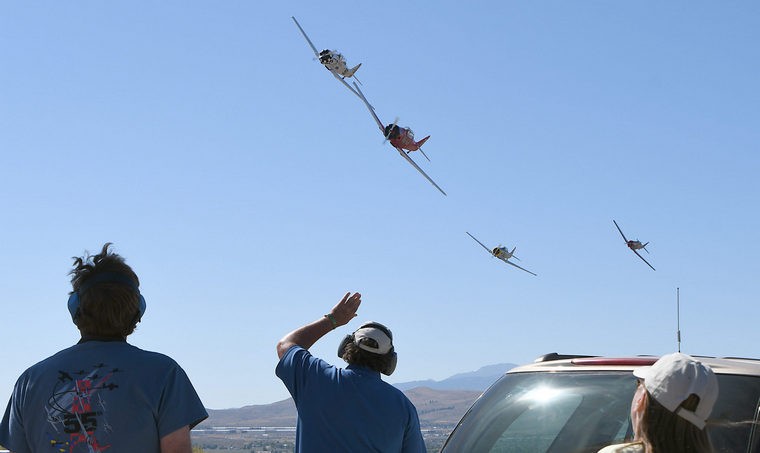 Over 50 years ago, the first plane went up in the Nevada desert to kick off what would become the STIHL National Championship Air Races and a legacy was born. A legacy of history, heritage and preservation. Of daring, imagination and wonder. Photo © Reno Air Races The results for this year's STIHL National Championship Air Races are as follows. Unlimited Class Results: Dennis Sanders flying Dreadnought completing the course in 09:20.713 at an average speed of 403.274 mph Jet Class Results: Pete Zaccagnino flying Just Lucky completing the course in 05:41.672 at an average speed of 495.106 mph Sport Class Results: Andrew Findlay flying One Moment completing the course in 07:12.928 at an average speed of 390.744 mph T6 Class Results: Chris Rushing flying Barons Revenge completing the course in 07:23.400 at an average speed of 235.081 mph. Formula One Results: Lowell Slatter flying Fraed Naught completing the course in 06:09.023 at an average speed of 243.442 mph. Biplane Class Results: Andrew Buehler flying Phantom completing the course in 04:55.831 at an average speed of 227.755 mph.  THE SILVER SPITFIRE - THE LONGEST FLIGHT EXPEDITION The Silver Spitfire, is a Mk.IX Spitfire finished in polished aluminium with the guns removed, is one of the most original airworthy spitfires in the world. By presenting the aircraft in this beautiful 'bare metal' state the organisers of the round the world flight aims to highlight the beauty of the Spitfire's timeless design, drawing attention to the unique and famous shape of the airframe. Spitfire MJ271 was flown during WWII by pilots from Australia, Canada, Norway, Trinidad and the United Kingdom. Pilots Steve Brooks, 58, and Matt Jones, 45, will take turns to fly the Silver Spitfire to around 30 countries as well as over some of the world's most iconic landmarks. Some of the sights will include the Grand Canyon, Mount Fuji, the Golden Gate Bridge, the Statue of Liberty, the Pyramids of Giza and the Great Wall of China. One van Follow the journey live on www.spidertracks.com and keep check of where in the world G-IRTY and the team are.  EUROFIGHTER TYPHOON DEFENSIVE AIDS SUB-SYSTEM ENHANCEMENT STUDY CONTRACT AWARDED 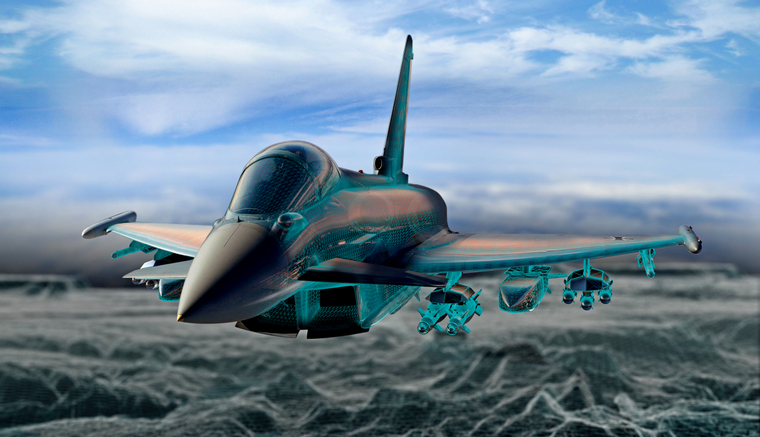 The EuroDASS consortium, which comprises Leonardo, Elettronica, Indra and Hensoldt, will spend 18 months exploring future upgrades for the Eurofighter Typhoon's world-class electronic warfare system. The Praetorian Defensive Aids Sub System (DASS) is highly-regarded by users and has kept Eurofighter Typhoon crews safe throughout peace-keeping operations in Libya and Syria. . Image © Eurofighter. Leonardo, on behalf of the EuroDASS consortium, has received a contract from BAE Systems that will see the consortium explore the future of the Eurofighter Typhoon's 'Praetorian' Defensive Aids Sub System (DASS). The 'Praetorian Long Term Evolution (LTE)' study will lay the groundwork for future development work which will ensure that the Typhoon's Electronic Warfare system will remain one of the most advanced in the world for decades to come. The contract is a key part of the wider Eurofighter Typhoon LTE study, which aims to identify a suite of technology enhancements for the Eurofighter Typhoon's weapons system infrastructure and propulsion to provide a clear road map for the future of the platform. The Praetorian DASS is provided by the EuroDASS consortium, which comprises Leonardo, Elettronica, Indra and Hensoldt. It equips the Eurofighter Typhoon with advanced protection from threats including Infra-Red (IR or heat-seeking) and radar-guided missiles. The system is well-regarded by users and has been battle-tested on peace-keeping operations in Libya and Syria. The LTE project will enable Eurofighter Typhoon to be a survivable and effective combat aircraft out to 2060 against a background of accelerating technology development by potential adversaries. The Praetorian Defensive Aids Sub System (DASS) is the Eurofighter Typhoon's protection system, which integrates sensors and jamming equipment to provide exceptional situational awareness and a digital stealth capability for the aircraft, achieved through advanced electronic deception techniques. The Praetorian LTE study will evaluate potential future DASS requirements, enabling the aircraft to cope faster, easier and more affordably with new threats as they arise in the future. The study is expected to deliver options for long-term technical solutions and enablers which will sustain the growth path of the platform in the future. Options are likely to coverboth improved architecture, which new capabilities can be added to in a more agile and lower-cost fashion, and improvements to the exploitation and fusion of sensors to support the multi-role flexibility of the platform. A number of options will be explored and presented to the Eurofighter partner nations to support informed decision making.  VOLOTEA WILL SUPPORT DANTE AERONAUTICAL TO DEVELOP A HYBRID ELECTRIC AIRCRAFT  Volotea, the airline of mid and small-sized European cities has reached an agreement with D?NTE Aeronautical to collaborate in the project to develop a hybrid-electric aircraft for transportation of passengers. Image © Voltea. The new aircraft will be eventually able to serve routes between small and mid-size communities, where traditional aircraft are not profitable and other transport alternatives are not available. This environmentally friendly project is led by D?NTE Aeronautical and in which, apart from Volotea, other renowned institutions like Instituto de Empresa in Spain, ALTRAN in Europe and University of Sydney and University of Adelaide in Australia are taking part. This project intends to boost the economic development of rural environments and underserved touristic destinations constrained today by reduced transport alternatives. Additionally, the new concept will reduce emissions significantly through the use of electric motors, fed by electricity stored by batteries or generated on board with a highly-efficient internal combustion engine. Industry objectives like IATA´s reduction in net aviation CO2 emissions of 50% by 2050 (relative to 2005 levels) will only be possible by a change of paradigm. The introduction of alternative technologies to conventional jet engines and turbo propellers are key to achieve that goal.  AUTONOMOUS AIR MOBILITY COMPANY EHANG TO DEPLOY AIR SHUTTLE SERVICE IN GUANGZHOU 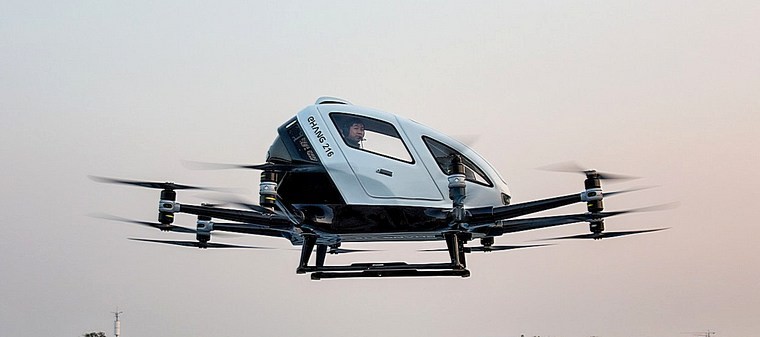 China's EHang, a company focused on developing and deploying autonomous passenger and freight low-altitude vehicles, will build out its first operational network of air taxis and transports in Guangzhou. Photo ©Ehang EHang, which was chosen at the beginning of this year by China's Civil Aviation Administration as the sole pilot company to be able to build out autonomous flying passenger vehicle services, has already demonstrated flights of its EHang 184 vehicles carrying passengers in Vienna earlier this year, and ran a number of flights in Guangzhou in 2018 as well. In addition to developing the air traffic control system to ensure that these operate safely as a fleet working in the air above the city at the same time, EHang will be working with Guangzhou to build out the infrastructure needed to operate the network. The plan for the pilot is to use the initial stages to continue to test out the vehicles, as well as the vertiports it'll need to support their operation, and then it'll work with commercial partners for good transportation first. The benefits of such a network will be especially valuable for cities like Guangzhou, where rapid growth has led to plenty of traffic and high density at the ground level. It also could potentially have advantages over a network of autonomous cars or wheeled vehicles, as those still have to contend with ground traffic, pedestrians, cyclists and other vehicles in order to operate, while the low-altitude air above a city is more or less unoccupied  LONDON BASED INVESTOR AND ADVISOR OMID VAZIRI AGREES A PRIVATE INVESTMENT INTO AEROMOBIL 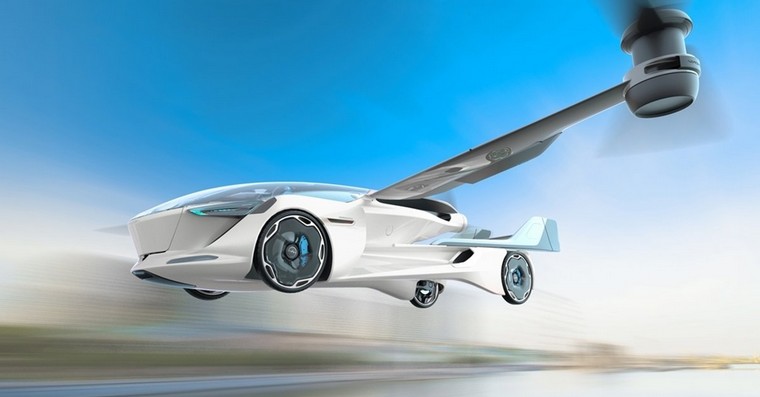 AeroMobil, one of the leading start-ups developing flying cars and personal aerial transportation received private investment from Omid Vaziri, a UK based investment banker and advisor. Image © Aeromobil. He continues "AeroMobil has now strategically placed itself at the forefront of door-to-door personal aerial transportation. Through its pragmatic approach and backed by impressive technology, AeroMobil has developed a vehicle that can both drive and fly within existing regulation and infrastructure. As such AeroMobil is in the unique position that it does not depend on the development of a new regulatory framework in order to gain immediate market access, making it an attractive investment opportunity in an exciting new market." To date AeroMobil has successfully raised over €24 million from a range of investors: Initial seed capital over the first 5 years was provided by serial entrepreneur and start-up investor, Juraj Vaculik, Co-founder and CEO of AeroMobil. AeroMobil has also been actively supported by the Slovak government and its development and growth agencies. Earlier this year AeroMobil appointed Rothschild & Co and as sole financial advisor to close its latest funding round. AeroMobil has already held discussions with a number of leading strategic investors from automotive and aerospace, as well as a number of family offices and VC funds. To date, AeroMobil has showcased short take-off and landing (STOL) and electric vertical take-off and landing (eVTOL) vehicles, both with unique FlyDrive capabilities. It is also one of the first flying car companies to submit an application to European Union Aviation Safety Agency (EASA) for a Type Certificate for its upcoming AeroMobil 4.0 STOL flying vehicle.    Ireland, A Condor Airbus on a flight from Frankfurt to Cancun, Mexico had to divert course and make an unexpected landing in Ireland after the pilot spilled coffee on the aircraft's controls. The cabin crew had given the pilot the cup without a lid, and when the pilot knocked it over, some of the beverage splashed onto the audio control panel. The control panel became very hot and began smoking that caused significant communication difficulty for the flight crew and forced them to don oxygen masks. After the unexpected landing, the plane was inspected and repaired and continued its flight to Mexico. The company later revised its policies regarding hot liquids in the cockpit. UK, Chatteris, Cambridgeshire: Two parachutists free-falling at 120 mph in the United Kingdom had a near miss with two U.S. fighter jets that zoomed below them. The F-15 fighter jet pilots were unaware they were flying near an active parachute site over Chatteris in Cambridgeshire, and air traffic controls did not warn them ahead of the April incident according to the recent report from the UK Airprox Board, part of the U.K.'s Civil Aviation Authority. Scotland, Glasgow: The co-pilot of an easyJet Airbus A319-111 with 148 passengers and six crew on board co-pilot suffered a panic attack while a plane was approaching a runway in Scotland. His anxiety was triggered by a go-around the day before at just 30 feet and his worries which built up over the course of his duty the following day last September. The experienced 50-year-old commander and his cabin crew worked together to land the plane safely and get medical help for the co-pilot. Canada, Abbotsford: A Swoop Airlines Boeing 737-800 with 176 people on board on a flight from Abbotsford to Edmonton was in the initial climb out of Abbotsford when a number of geese were ingested by the right-hand engine causing the engine to emit bangs and streaks of flames. The crew stopped the climb at about 8000 feet and returned to Abbottsford for a safe landing on runway 07 about 20 minutes after departure. USA, Washington: The U.S. Air Force has indefinitely barred the KC-46 from carrying cargo and passengers. The decision was made after an incident occurred where the cargo locks on the bottom of the floor of the aircraft became unlocked during a recent flight, creating concerns that airmen could potentially be hurt or even killed by heavy equipment that suddenly bursts free during a flight. As a result of this discovery, the Air Force has submitted a Category 1 deficiency report and is working with Boeing to identify a solution.   18 SEPTEMBER 1919 Roland Rohlfs, a Curtiss test pilot, was the first person to reach 35,000 feet in an open cockpit Curtiss 18 T triplane over Curtiss Field, Long Island. Oxygen was provided in a bottle connected to a tube that Rohls sucked on at altitude. Photo © Wikipedia 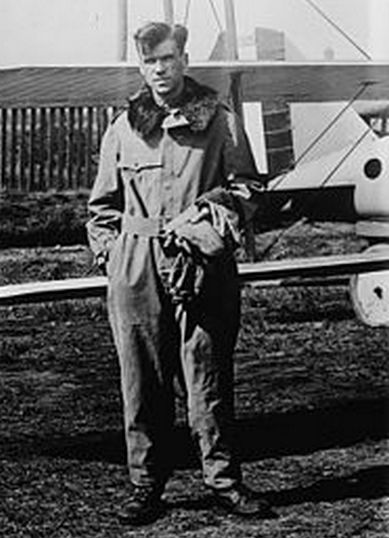 Rohlfs flew a hydro-aeroplane called the "Dunkirk Fighter" for Curtiss Aeroplane and Motor Company in 1918. Later that year he broke the flight airspeed record while flying a Curtiss Wasp, his speed was clocked at 163.1 mph (262.4 km/h). In 1919 he broke another world record when he flew to an altitude of 34,610 feet in a Curtiss L-3 triplane (at - 47 degrees Fahrenheit). After World War I, he flew for various companies using airplanes and autogiros for advertising purposes. From 1938 to 1953, he held various posts with the Civil Aeronautics Administration, such as Chief of Technical Section, Air Safety Board, Civilian Pilot Training, War Training Service and other duties. Rohlfs passed away in 1994.  |
                    |
 |
 |

Copyright © Pilot's Post PTY Ltd
The information, views and opinions by the authors contributing to Pilot's Post are not necessarily those of the editor or other writers at Pilot's Post.